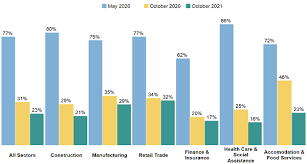Brooklyn is seeing a surge in small business growth as the city recovers from the pandemic. Local entrepreneurs are opening shops, cafes, and creative studios, helping neighborhoods bounce back. These small businesses are becoming models for community-driven economic recovery.
In Williamsburg, new coffee shops and artisanal stores are thriving. Owners say customers return not just for products but for the community feel. “People want to support local. It makes a difference,” said one shop owner. The personal touch and community connection are driving steady sales.
Bushwick has also seen a rise in small tech and creative startups. Young professionals are choosing Brooklyn for its energy and supportive network. Shared workspaces and co-working hubs are helping new businesses get started with lower costs. This makes entrepreneurship more accessible for people from diverse backgrounds.
These businesses are creating jobs and opportunities for local residents. Many owners hire staff from their neighborhoods, contributing to local income growth. Residents report that they feel safer and more connected to their area as more shops and cafes open. “We see people outside, walking and shopping. The streets feel alive again,” said a local resident.
Brooklyn’s local markets are benefiting too. Farmers’ markets, street fairs, and pop-up shops allow small businesses to reach customers directly. These events showcase local talent and products, attracting visitors from other boroughs. By supporting these markets, residents strengthen the local economy and help small businesses survive and grow.
Technology is also playing a role. Many small businesses are using social media to promote products and interact with customers. Online ordering and delivery options have expanded their reach beyond Brooklyn. Entrepreneurs are using these tools to adapt quickly to changing market trends, increasing their chances of success.
Some business owners have formed networks to share advice and resources. These networks offer guidance on marketing, finance, and operations. By collaborating instead of competing, Brooklyn entrepreneurs create a stronger, more resilient business community.
Economic experts note that Brooklyn’s model of small business growth could inspire other cities. A focus on local products, community engagement, and technology has helped neighborhoods recover faster than expected. Experts say this approach balances profit with social impact, which benefits both businesses and residents.
Local government has supported these efforts with small business grants and simplified permits. Programs focused on minority-owned businesses have further strengthened the community. Officials highlight Brooklyn as a case study in how targeted support and community energy can drive economic recovery.
Brooklyn’s experience shows that recovery is not just about large investments. Small businesses, rooted in local communities, can lead the way. By providing jobs, fostering creativity, and encouraging social interaction, these enterprises are transforming neighborhoods and inspiring hope.
The surge in Brooklyn small business growth illustrates the power of entrepreneurship in rebuilding communities. As residents support their local shops and cafes, they help strengthen the local economy and create a blueprint for recovery that other cities can follow.



